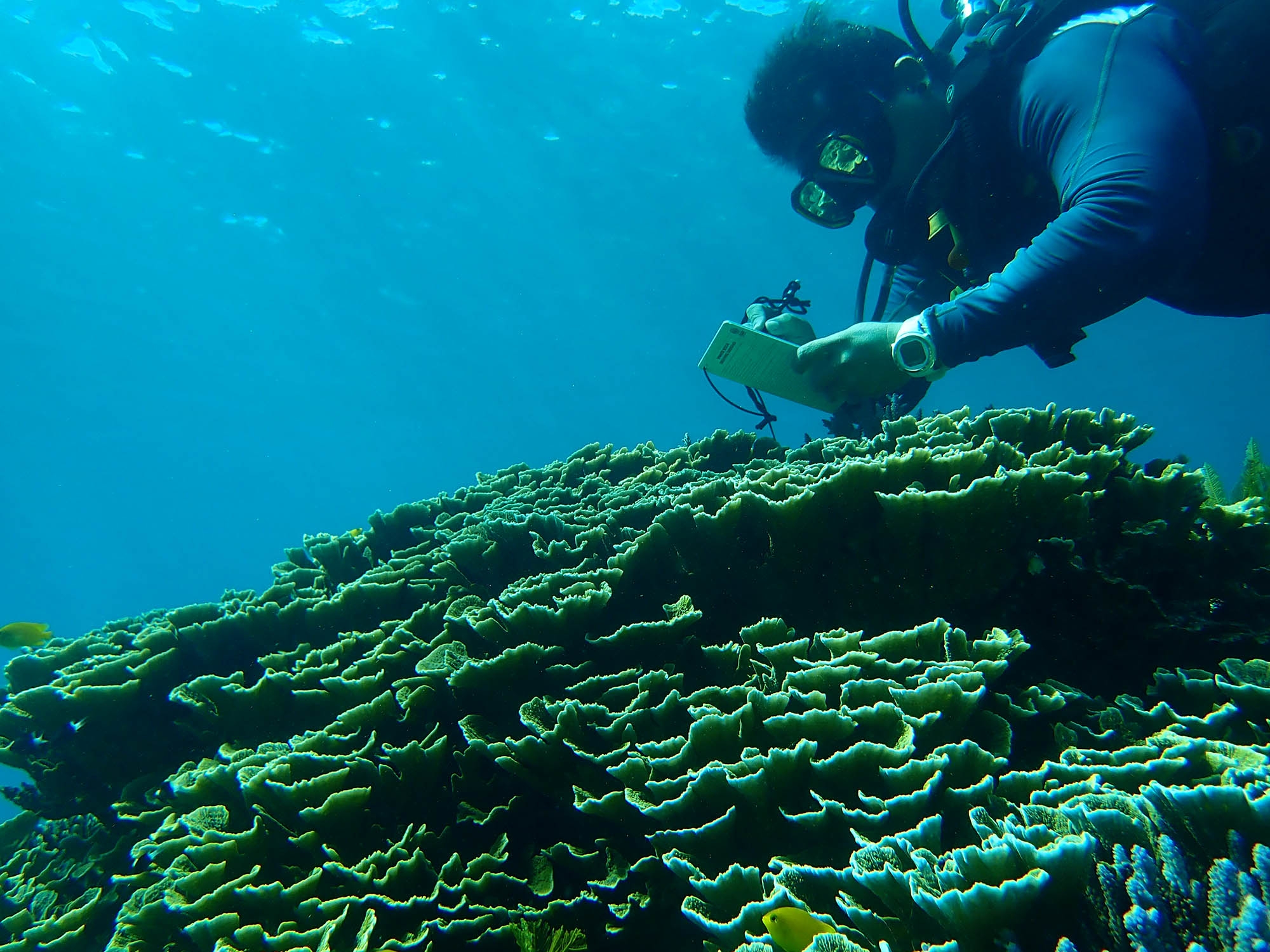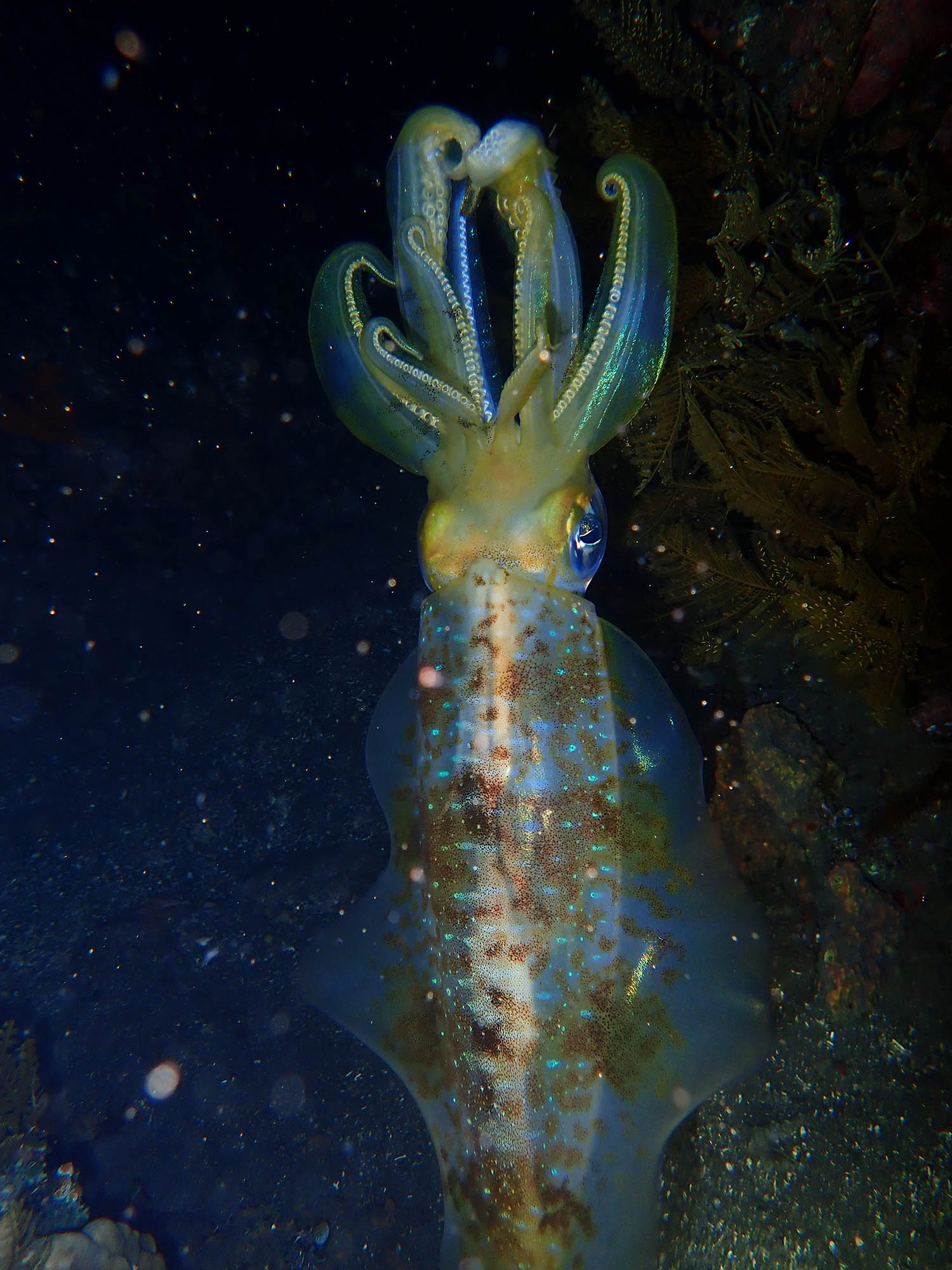Be at the forefront of marine
conservation in Bali
Scuba diving 8 times a week & life in paradise!
-
Duration
1-8 Weeks -
Accompanied age
10+ -
Minimum age
17+ -
Start dates
1st & 3rd Thursday -
From
$700
-
Duration
1-8 Weeks -
Accompanied age
10+ -
Minimum age
17+ -
Start dates
1st & 3rd Thursday -
From
$700
Bali Diving Conservation
Quicklinks
Be at the forefront of marine conservation as you work alongside the local community to deploy artificial reef structures around Tulamben - one of the most popular diving spots in Bali! Spend your days in the serene waters of the Indian ocean and soak up the scenery on this idyllic diving programme.
By diving up to eight times a week across four different sites, this is a great opportunity to improve your marine life knowledge and collect valuable data which is vital to continuing the marine conservation work. You will get the chance to directly see the impact of your work on regular dives where you can meet the new fish and communities which have been recovered by the newly deployed artificial reefs.
Outside of volunteering there are plenty of opportunities to explore all that Bali has to offer from snorkelling to hiking, surfing or yoga. The accommodation is located at the dive resort in Tulamben which is a perfect spot to relax outside of your volunteering duties. Just a five minute walk to the beach, you can take in the sunrise over the sparking ocean in the morning and experience a breath-taking Balinese sunset behind Mt Agung volcano in the evening.
Background to the marine programme
Diving the coral reef in Bali can be one of the most visually stunning experiences you will ever have, however, it can also open your eyes to the destruction and decline of the coral reef in recent years.
Many areas along the North-East coast of Bali have been exploited in the past due to destructive fishing, pollution, warming temperatures and other human activities. Of the millions of tourists that travel to the tropical island of Bali each year, not many realise the affect that their unsustainable tourist behaviours have on the coral and the impact this has on the general health of the world itself. The safe haven that coral reefs provide are home to 33% of all the fish species in the ocean as well as functioning as an important breeding ground for 25% of all marine species. Yet, despite their importance, 75% of reefs worldwide are currently under threat. It is projected that (if we continue as normal) 90% of coral reefs will be threatened by 2030.
However, not all hope has been lost! After realising the increasing decline of the coral reefs the local team were inspired to create a diving community that can spread awareness around the world and help restore the reef in Bali. The local team rely on passionate volunteers like you to help deploy artificial reefs for the sake of marine life in North East Bali and further afield.
The artificial reefs that you will be deploying help to restore areas of exploited coral reefs by allowing coral larvae to naturally settle and grow in the sandy areas where they otherwise not be able to – maximising the habitat for fish and other important parts of the eco-system.
A major part of the reef restoration programme is also to encourage local communities to construct and deploy artificial reefs to help protect their environment. Therefore you will be working as a team, alongside volunteers, fishermen and members of the local community.
Where will I be volunteering?
The dive resort and accommodation is located in Tulamben in the North East of Bali, just a five minute walk to the nearest beach and a short drive to the world famous USAT Liberty Shipwreck dive site.
You will be volunteering at across four sites along the coast in the local area, spending your time on the beach or under the water in the sea. There's no better place to be volunteering, as you work under the shade of the palm trees listening to the waves crash and taking in the tropical surroundings. All activities are carried out either at the accommodation or close by, with all transport provided.
What is my role?
As a volunteer you will become a vital member of the team and your main focus while in Bali will be to continue the efforts of constructing an ongoing artificial reef to replace where the natural reef has been destroyed. With the help from you, other volunteers and also the local fishermen, we build and deploy many different designs of artificial reef units to provide a varied habitat for an optimal number of species. Each volunteer will be able to build a personalised roti buaya structure, which will be deployed directly onto the reef - there's no better way of knowing you have made a difference!
Your daily tasks will include:
Artificial reef deployment dives - For our first dive, divers in their buddy teams arrange the artificial reef structures into the optimum formation to maximise the habitat available to create new life in the reef. Then we will all descend together as a group before swimming to our deployment site. There, we take o ff our fins and work in buddy teams to carry one structure per buddy team. We shuttle back and forth, adding the newly deployed structures to our artificial reef.
Reef monitoring dives - After the deployment dive we take a short surface interval before our second dive to survey the coral and fish communities developing on the artificial reef aggregations. The level of this dive depends on each diver’s prior knowledge and ability. First, we work on our fish identification by identifying and then counting the species and number or individual fish on the artificial reef. It may also be possible to help assess the coral communities on our dive by using underwater quadrats to photograph the coral communities growing on the artificial reef to quantify coral percentage cover, biodiversity and colony sizes.
Data Processing and ID workshops - In the afternoon, we debrief and evaluate the results of our reef monitoring. We work together to develop our coral and fish ID skills as a team by identifying the unknown individuals recorded on our dives. New data from our reef monitoring program will be inputted to our database and shared with local authorities and researchers.
We aim to dive up to eight times per week and so you’ll need to have at least a PADI Open Water Diver certification.
What will a typical day look like?
You will volunteer 4 days a week, starting on Friday mornings and finishing on Monday afternoon. Tuesday, Wednesday and Thursday are free for you to travel and explore at your leisure before starting again on the Friday.
Breakfast is served everyday at 8AM although many volunteers will be up before this to head out for a quick morning snorkel in search of marine life.
At 9AM we take a short trip to one of our restoration sites which can be 5- 20 minutes away. All transport is arranged by the local team and included in the programme fee.
You will spend the morning arranging and deploying reef structures at your designated deployments site. After the deployment dive we take a short surface interval before our second dive to survey the coral and fish communities developing on the artificial reef aggregations.
When finished we will head back to Tulamben for lunch around midday.
In the afternoon, we will participate in data processing and ID workshops where we will debrief and evaluate the results of our reef monitoring as well as develop our coral and fish ID skills. New data from our reef monitoring program will be inputted to our database and shared with local authorities and researchers.
We finish around 4PM. Everyone has some time to relax before dinner around 6-7PM and then partake in some social activities in the evenings. Most of the volunteers will come together to share stories and play games or enjoy the onsite pool and bar.
The following day we’ll visit another restoration site to deploy and monitor the artificial reef there.
Where will I be staying?
The programme and accommodation is based in the small fishing town of Talumben in the North-East of Bali. Home to the wreck of the Liberty, a US Army Transport ship torpedoed by a Japanese submarine in 1942, this is one of the most popular diving sites in Bali, attracting around 100 divers a day in high season.
Although this region of Bali is generally quieter, you are only 20 minutes drive from nearby towns where you will find shops, restaurants and bars. Having said this, most volunteers will choose to stay around the accommodation where you can walk to the beach in 5 minutes, enjoy the on-site bar and watch the sunset behind Mt Agung.
The accommodation itself is nothing short of paradise and is the perfect place to unwind at the end of the day. As far as volunteer accommodation goes, the dive resort is definitely in the more luxurious end, with a bar, pool and stunning views of the surrounding landscape.
Other things to consider
PADI diving courses - If you wish to dive as part of the programme you will need to be at least certified to a PADI Open Water Diver. You can become fully qualified with a PADI open water dive course (£349 / $440) that will allow you to dive throughout the volunteering programme and also during your free time and further travels. Simply select the dive course when applying. For anyone that already knows the basics and is qualified, we offer the Advanced Open Water (£289 / $360) and Rescue Diver (£379 / $460) PADI courses to enhance your skills and experience.
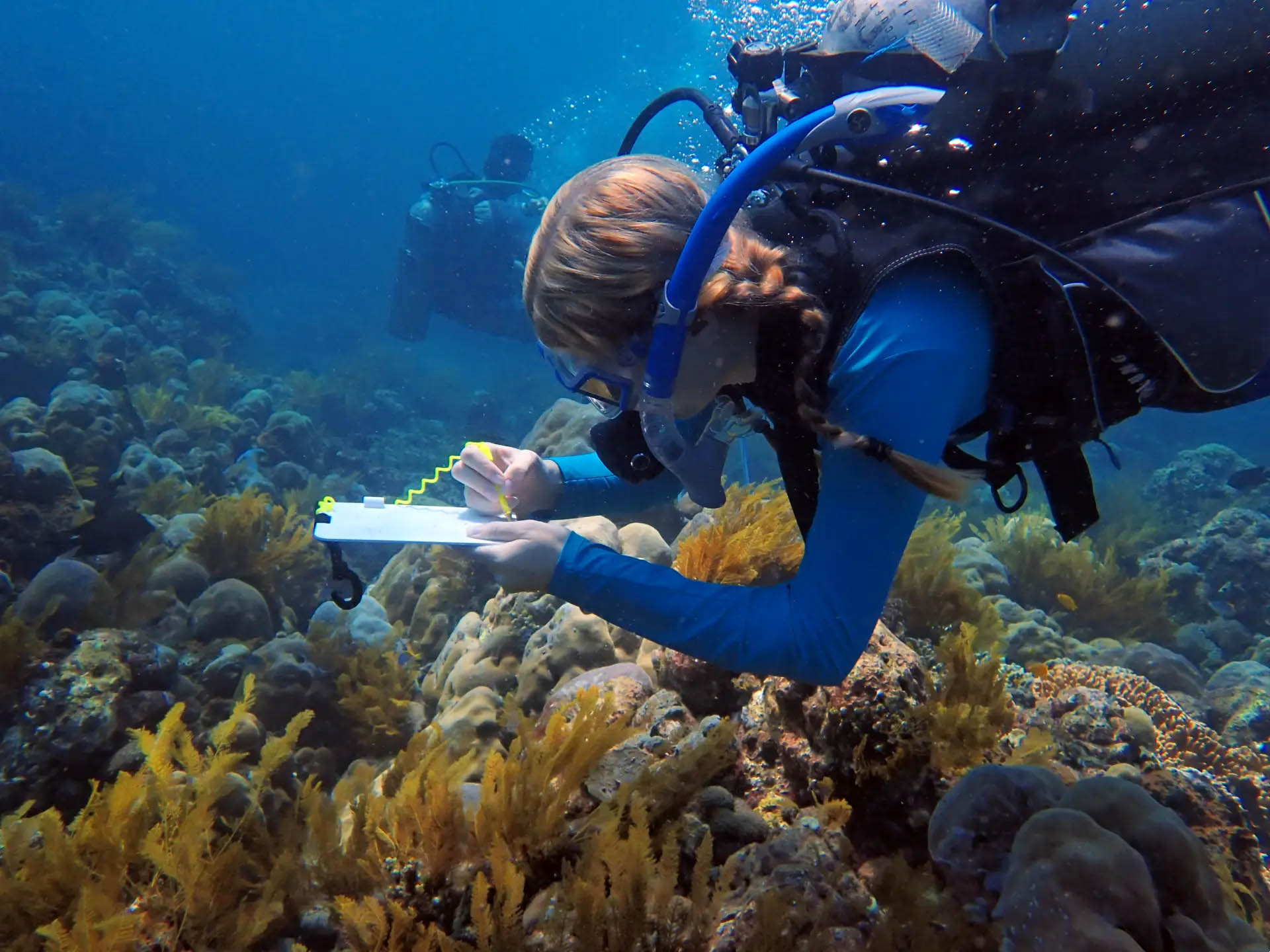
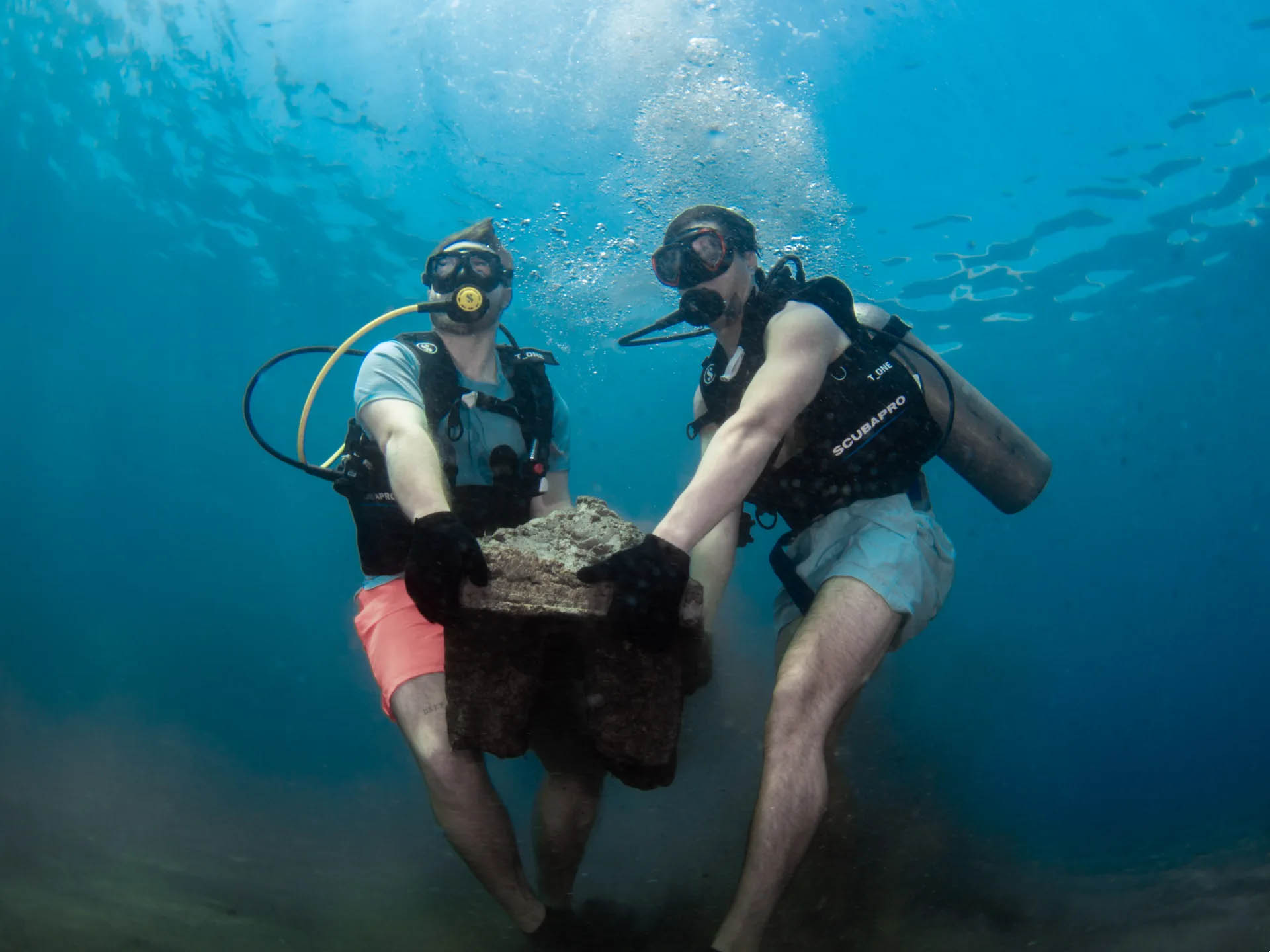


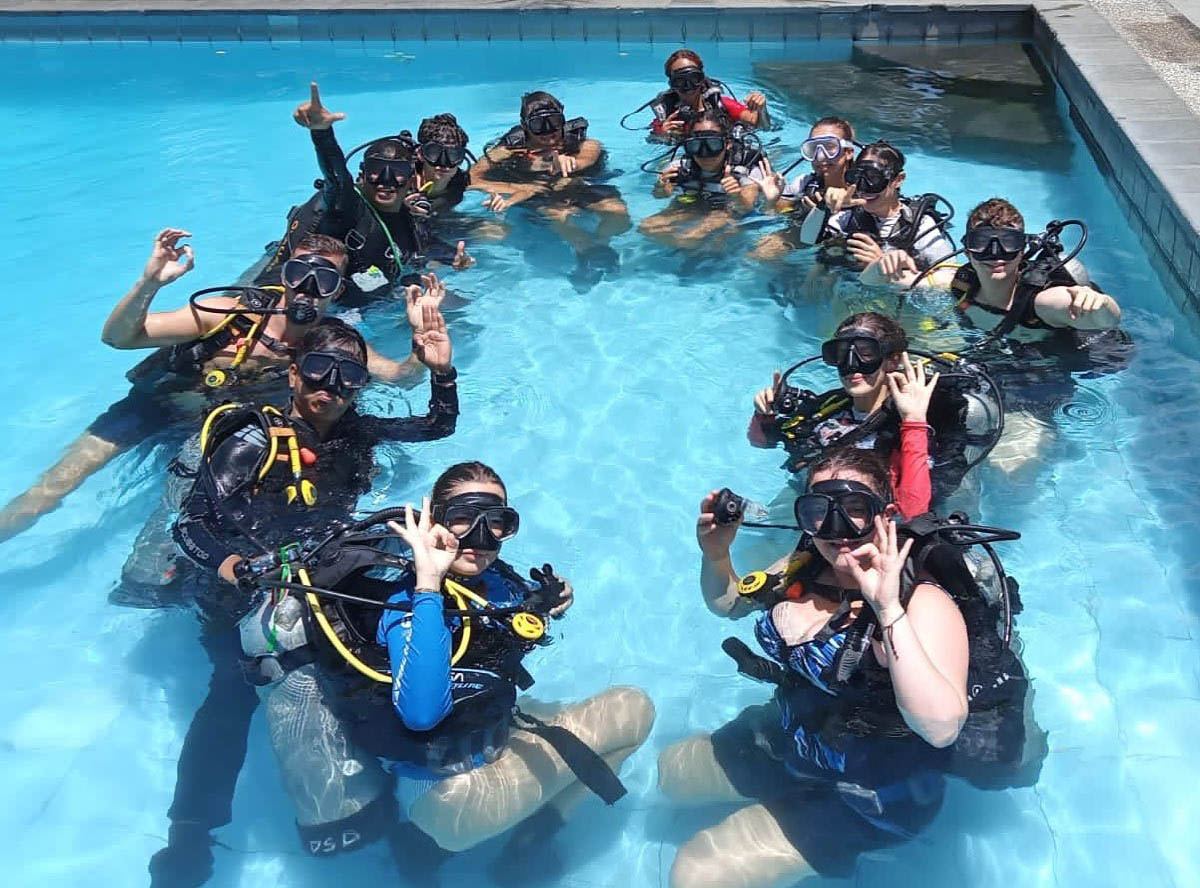
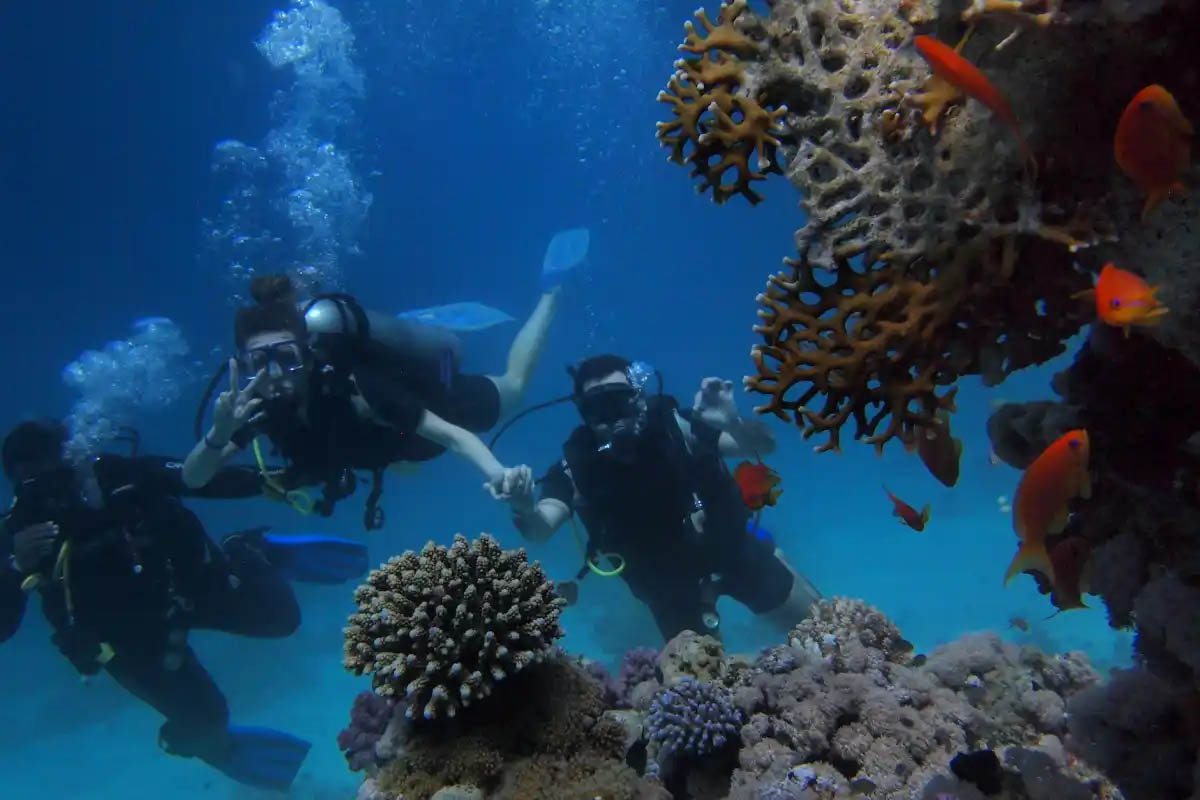




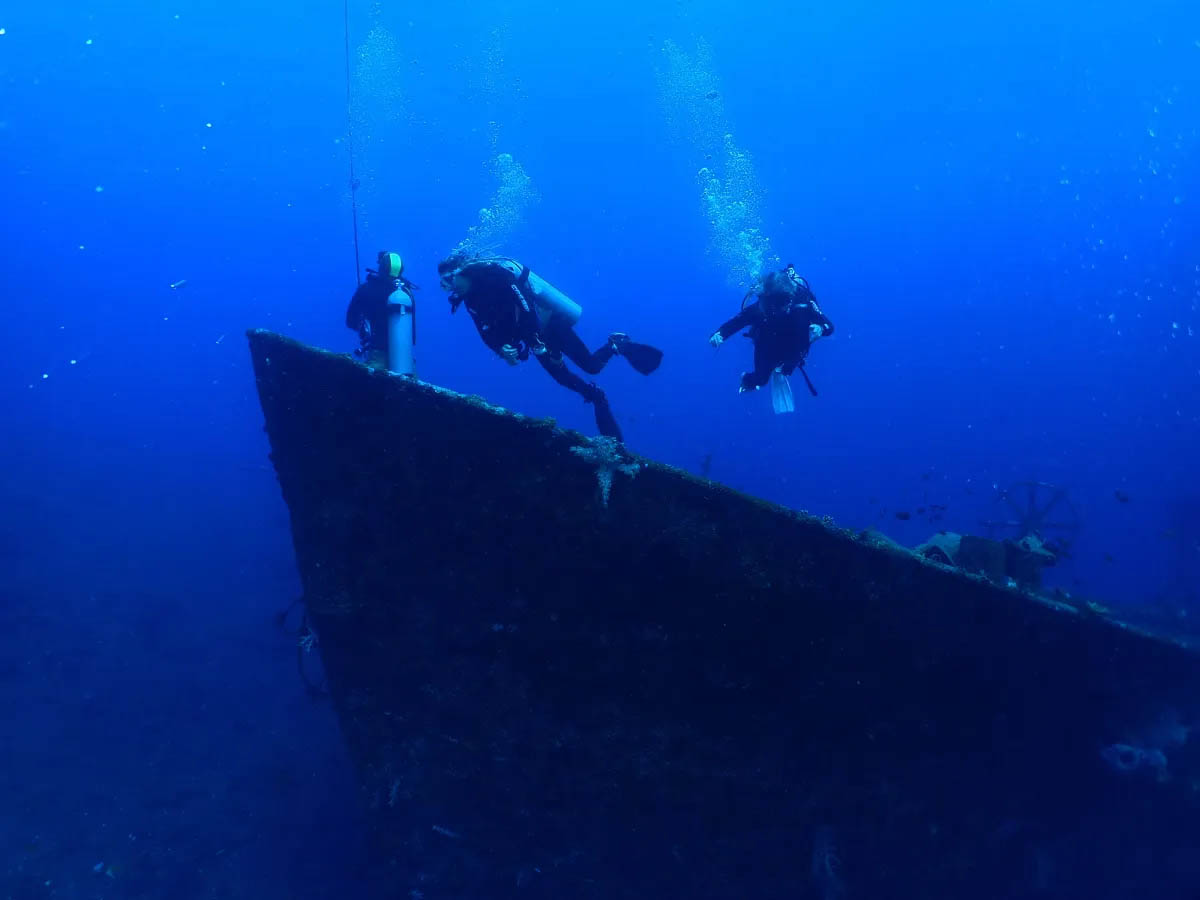



copy-6530ea7351f4d.jpg)



